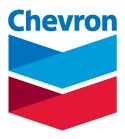Why informational interviews?
One of the best ways to network with industry professionals is through informational interviews. Industry contacts can help you gain insight on opportunities you otherwise wouldn’t recognize. Talking to industry contacts is a great way to learn what to add to your resume to tailor yourself to a job position you want.
You can find contacts through LinkedIn, the Aggie Network, and CareerShift and set up informational interviews using Linkedin connection requests or through email.
If you are using Linkedin, send your potential contact a connection request with a message like:
Hi, (Mr./Ms./Dr. Name)! My name is ________. I was doing research and found your profile. You have the career that I am aspiring towards one day. Would it be okay for me to ask you for some career advice?
If you are sending an email to set up an informational interview, you can write a message like:
Dear (Mr./Ms./Dr. Name),
My name is Name. I am a graduate student at Texas A&M, earning a degree in field/major. I found your contact information through website/referral. I have been considering pursuit of a career in the area of interest and want to learn more about the industry. Would you have a moment to share some advice and insight regarding your organization and the work you do in the industry? Any assistance you can provide will be greatly appreciated.
Thank you for your time!
Best,
Full Name
If the contact emails you back, promptly respond and set up a time, date, and format for the interview. An informational interview can be in-person, over the phone, or through a video chat application like Zoom. Do some research on the work your contact does and keep your notes ready for you to reference.
Begin the interview by thanking your contact for their time. Then, explain what interests you about their industry and why you are excited to learn from their perspectives. You should mention your referral if you received one.
Industry contacts often want to understand where you are coming from when starting an informational interview. You should have a short, well-prepared introduction of your background and interests. Focus your discussion on the type of work that your contact is familiar with.
Here is an example of an introduction:
“I became interested in the industry/field last summer when I interned at organization name and had an opportunity to work with the (job type) director. Her job provided an opportunity to make a difference with the organization and it really made an impression with me. She worked with all aspects of responsibility and responsibility. She was sincerely interested in helping her team goal. I liked the variety in her job and the fact that she was a very positive influence at organization name.
Following the introductions, you should concentrate on asking questions, listening to responses, and learning about the industry and company.
- Don’t waste your interviewee’s time by asking them questions you can Google instead.
- Never argue with the opinions or experiences of your contact, because they are the experts.
- During an informational interview, never ask about job openings.
- Respect their time and perspectives; remember that it is the moment to learn and not sell.
These are some example questions to ask during your informational interview:
- Looking back through your career, what key steps led you to where you are today?
- If you were starting your career today, where would you focus your attention?
- What characteristics/skills make for a good ________?
- Where do you see evolving needs or areas of emerging opportunities?
- How would you describe the culture of your organization?
- What can I do to make myself more marketable in your industry?
- What do you like most about working for your company?
- What advice would you share to help someone like me prepare?
- What should I be learning that many students don’t think about?
- Who else should I be talking to?
- Do you know anybody that needs help?
After ending the interview, don’t forget to email your contact a thank you message! Well thought-out thank-you notes that reflect what you learned will leave positive impressions with the people you talk to. To make a lasting impact, consider also mailing a physical handwritten note to each person.
